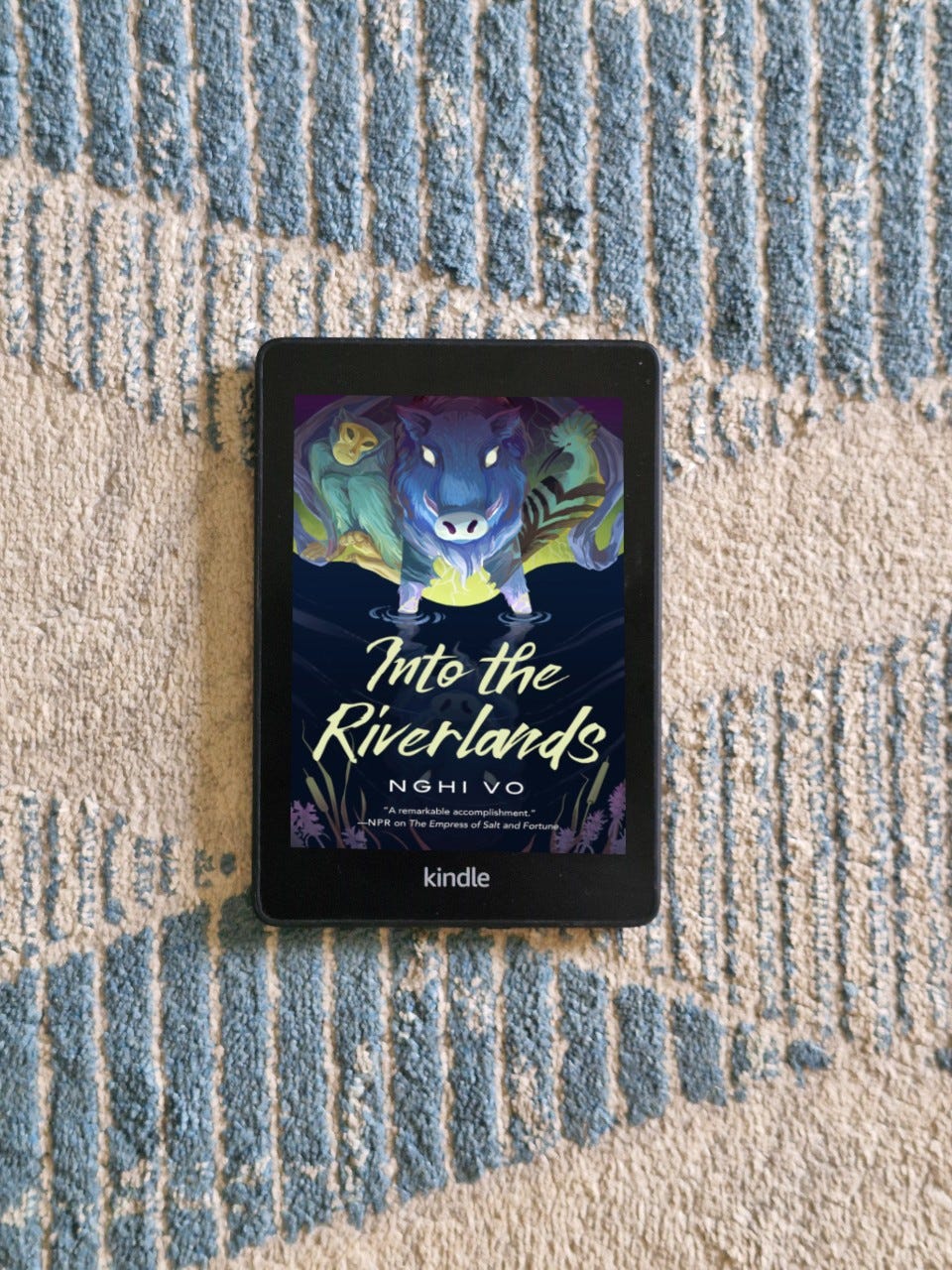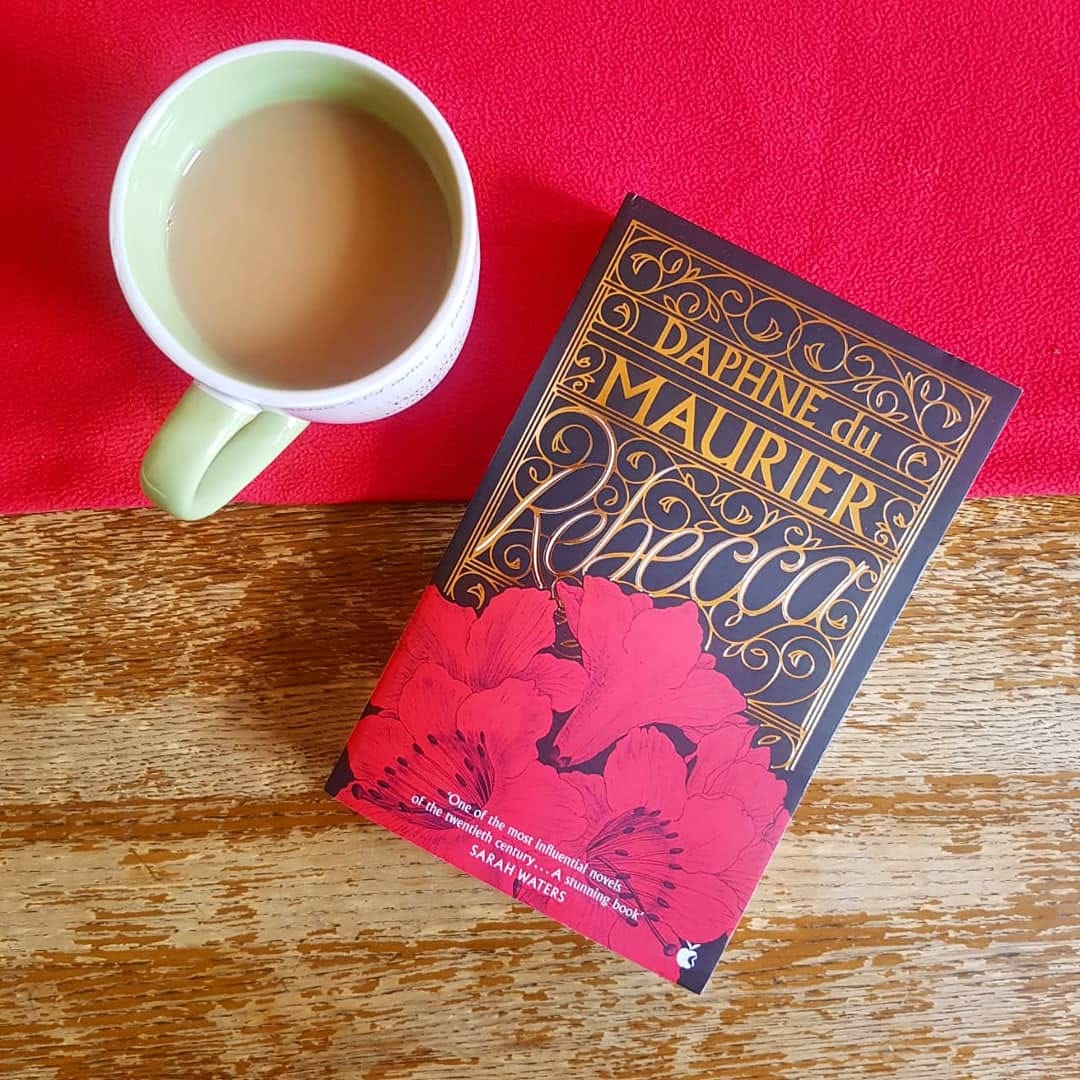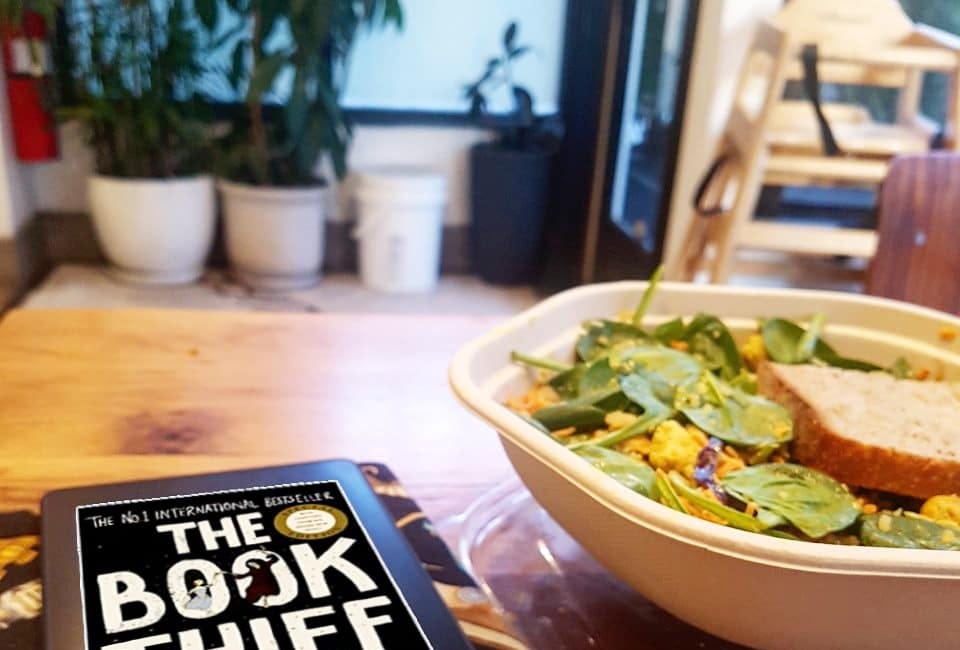15. "That is your calling, isn't it? To remember and to mark down."
Rereads, the nature of story, and the act of memory via Nghi Vo and Daphne du Maurier, and three newsletter recommendations
Dear reader,
I’ve just finished my reread of the first three novellas in Nghi Vo’s Singing Hills Cycle series, and as with most, if not all, rereads, I walked away with a better appreciation of what the author’s intentions with these stories. Which of course makes the actual reading pleasure even stronger than the earlier time (and it wasn’t like I’d disliked them to begin with). As an aside—when I wrote about only one new-to-me novella waiting for me in the previous issue, I was mistaken. It turns out that there are two novellas in the series I’m yet to get to (not to mention novella 6 which is out later this year). I’ll review them all in the next issue, once I have read 4 and 5. Today, I want to share brief impressions of revisiting the first three.
A little background for those who haven’t read the series. These fantasy novellas are all connected by the non-binary cleric Chih from the Singing Hills Abbey who traverses the lengths and breadths of the kingdom of Anh, with the trusty neixin Almost Brilliant (a memory spirit shaped like a talking hoopoe bird), to record as many stories as they can. They are but one of the cleric-neixin pairs out there—and each generation of neixins, who never forget anything, pass on what they’ve been told so that no knowledge is lost. There is even a sister abbey in Tsu with cross-replication, as insurance.
Chih’s job profile is “historian and observer”. Even though, as they note in the first novella, The Empress of Salt and Fortune—“Sometimes the things we see do not make sense until many years have gone by. Sometimes it takes generations. We are taught to be content with that.” They are taught to be patient, learning how to wait for a story rather than chasing after it, trusting that it will come to them; and if not them, someone who will come after and continue the work of the Singing Hills clerics.
“They had been given to Singing Hills at the age of two. They didn’t remember a time when they hadn’t been asked to see and to remember, to recite back with accuracy and to ask for the truth in whatever form it came in.”
What I love about this series is not only the stories themselves, and the duo of Chih and Almost Brilliant, but also the discussions about the nature of story itself; the challenges of recording, remembering, interpretation, and meaning; how perspective, context, and even audience are important; the relationship between truth and fiction; the question of is there one true version, of us or of a story; of being ready to truly understand a story, and the duty to protect some stories until the time was right (“Singing Hills knew that the truth showed up in its own time.”).
Vo doesn’t always present us with neat answers, but when was that the point?!
It is this exploration and comprehension that deepened my enjoyment during the reread. The first time around, I was naturally focused on grasping the story told. But now? Now I was able to take my time and discern the layers, the interconnectedness, the subtle nods. Not to mention my attention to the detail of narrative structure.
Novella 1, a story-within-a-story revealed in fragments, vignettes almost; novella 2, the narration of two very different versions of the same story, so that said story could be complete, recorded in the best truth available to them; novella 3, the bringing together of many different heroes and myths alongside a journey on foot, linking past and present, old and new.
The Empress of Salt and Fortune (Book 1, Singing Hills Cycle)
*Buy print (India) | Buy ebook | Bookshop.org (US)
Today is one of the handful of issues a year when I don’t fully know what I’m going to write about until I start typing, and then, if I’m lucky, the magic happens. Which brings me to the next section.
“Last night I dreamt I went to Manderley again.”
Earlier this week I had vaguely registered that May 13 was Dame Daphne du Maurier’s 118th birthday. But it wasn’t in my mind as I typed my thoughts on the Vo novellas. And yet, some of the discussions that emerged through that put me in mind of my last reread of Rebecca, a few years ago. And voila, unplanned synchronicity.
I've read the book multiple times in the past, but never had I felt such a deep sense that I was reading a completely different book to what I remember. After my The Book Thief reread only a few months prior to this one, I was definitely more cognisant about the emotional beats of a story that tower over the others in our minds, imprinted so deeply that we're often surprised when we realise how many other things we've forgotten and how, many times, those bright, sharp fragments are over much faster on the page than they've lingered on for us.
For example, I'll now remember that stifling, unrelenting heatwaves can be as atmospheric as thick fog and thunderstorms. I will also carry the uneasy, complicated knowledge of a story that makes you, despite everything, sympathise, even root for flawed, unlikeable characters.
For me, my most recent Rebecca reread will always be characterised by the themes of perception and memory. About how we frame our own stories, the things we choose to remember whether consciously or otherwise, the very process of memory and what we retain once a moment has passed.
After all, aren’t we, in our own ways, equally unreliable narrators like the ones we encounter in the book?
*Buy print (India) | Buy ebook | Bookshop.org (US)
Newsletter shoutouts
- recently made the switch over from Medium and is currently in the middle of a project where she posts an essay every Sunday for the whole year. I enjoy her clear, observant writing style and her insightful reflections on life, love, family, friendship, and more. An essay of hers I loved:
- and I have known each other for a few years via a journal she had founded and I contributed to. Her newsletter is about her efforts to live slowly and intentionally, and build a quiet, sacred, safe space to live that life. Here’s a post I particularly enjoyed in April:
Among the lovely people I’ve connected with because of the book instagram community is
. A friend with a big, brave heart whose words I immediately loved and can’t get enough of. She is new to this space and the bulk of her writing is on her instagram (bookshelfkeeps)—I cannot wait to see what’s to come. Sharing her beautiful intro post here:
From the archives
Includes the Book Thief reread I’ve referenced in the above section, which is also the inaugural issue of Character Studies (that I need to get back to writing again😅).
Anu Recommends #8
Hi and welcome to a whole new month of the Storyteller! I can’t wait to share what I’ve got planned.
If you’ve enjoyed today’s issue, here’s a few things you can do:
click on the heart to like it
turn this into a conversation by leaving a comment below or dropping me a line via email, even just to say hi—I always love hearing from you 😊
share it with friends and family who might like to read it
Buy me a coffee and support my work at https://buymeacoffee.com/anushreenande
Let me know what you’re currently reading and watching, send me rants/ramblings/recommendations/excited monologues, GIFs and memes (especially them) 🤓 and let me know if there is anything you’d like me to write about.
Take care and I’ll see you next on June 1!
Anu
*the book buying links I share on here are affiliate links (barring the links for my own published work for which I will earn royalties instead), which means that if you make any purchases through those links, I will receive a small commission from the sale at no additional cost to you.








Dear Anu, loved reading the newsletter as usual. Rebecca is indeed worth reading again. As you are aware, I going through Jack Reacher once again. I never cease to admire the mastery of Lee Child. Warm regards.
thank you for the mention🥺🩷